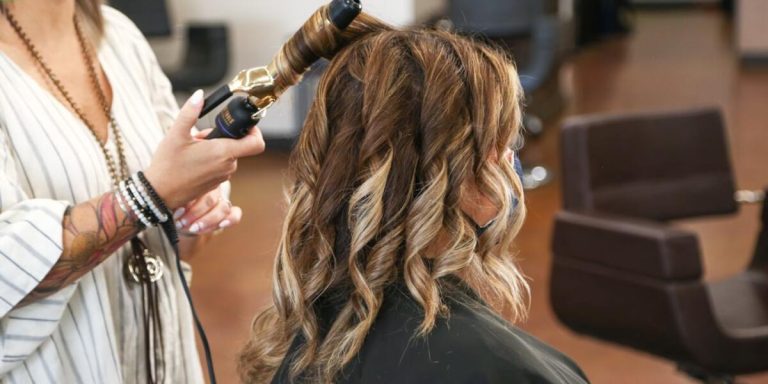Accutane Hair Regrowth: A Comprehensive Guide for the Journey to Restoration
Accutane hair regrowth is a journey engaged by many in the pursuit of restoring their crowning glory. As you may already know, Accutane, widely used to combat severe acne issues, often results in temporary hair thinning or loss as one of its side effects. This condition might be alarming for those affected, creating an urgent need for reliable and effective solutions.
This comprehensive guide unearths practical steps towards achieving significant progress in your restoration journey. We’ll delve into ways to strengthen your follicles from within while exploring various products known for promoting noticeable improvements on the surface. After all, understanding how best to tackle this challenge can help speed up the process and make it less overwhelming.
Did you know?
Despite its reputation for causing hair loss, a little-known fact is that Accutane (Isotretinoin), often used to treat severe acne, can also stimulate new growth in dormant hair follicles. This restoration process usually begins after the treatment has ended.
Understanding Accutane-Induced Hair Loss
Accutane, scientifically known as isotretinoin, is a potent medication commonly utilized in the treatment of severe acne. But like any powerful drug, it bears its share of side-effects too. One such concern that’s garnered attention over recent years is Accutane-induced hair loss.
Most people on this medication report experiencing some degree of thinning or shedding – distressing experiences indeed! Yet what’s heartening to note here is that most cases are temporary and reversible once the course ends. It’s essential not to panic but instead understand this connection between Accutane use and transient hair loss fully before brooding about long-term effects.
With proper care and patience post-medication regime, you can expect potential ‘accutane hair regrowth’ – your best recovery from this undesirable adverse effect experienced during your fight against chronic acne breakouts.
The Science Behind Isotretinoin and Its Effects on Hair Follicles
The science behind isotretinoin, commonly known as Accutane, and its impact on hair follicles is quite intriguing. This potent drug comes into play primarily for severe acne treatment but has been linked with certain side effects like hair loss.
It functions by shrinking the sebaceous glands – responsible for oil production in your skin. While this help reduces acne outbreak, it simultaneously impacts the scalp’s health leading to dryness and potential hair fall issue due to lack of natural oils.
Yet there lies a silver lining amidst these challenges. Not all hope is lost when we discuss accutane induced hair loss; enter “accutane hair regrowth”. Through proper care and appropriate steps involving nourishing products or treatments promoting growth after discontinuing Accutane usage can yield positive results.
Mild cases have shown improvement over time without any specific intervention—just regular good old-fashioned self-care suffices often! However, more challenging situations might demand professional assistance through prescribed medications such as Minoxidil known to stimulate faster regrowth or nutritional supplements that replenish deficiencies causing poor scalp health.
In conclusion, while Isotretinoin plays havoc on our precious locks during usage period owing to dehydration caused within our scalps from reduced oil secretion—it isn’t an irreversible damage sentence. Understanding “accutane-induced” dilemma helps strategize smartly towards successful recovery ensuring healthy sceario post-treatment scenario throughout 2023.
Identifying Signs of Hair Thinning Post-Accutane Treatment
Identifying signs of hair thinning after Accutane treatment can be a daunting process. Fortunately, there are key indicators to watch for that can help you recognize if your hair loss is due to this particular medication.
One of the first noticeable signs may include excessive shedding. Hairfall might seem more frequent than before and it’s not unusual to find strands scattered on your pillows, in the shower or even when combing through. This increased amount is often an early red flag relating accutane induced hair loss.
You might also observe visible change in volume and texture. Your once thick locks suddenly appear thinner with reduced density – another potential sign pointing towards post-Accutane reaction affecting follicles negatively over time causing them to shrink leading into reducing overall thickness.
Proven Strategies for Stimulating Accutane Hair Regrowth
Firstly, adopting a nutrient-rich diet can help enhance the health of your follicles and promote stronger growth post-Accutane use. Foods high in protein such as lean meats and quinoa along with foods loaded with omega-3 fatty acids like salmon or chia seeds should be included in your daily meals.
Topical treatments represent another effective method for promoting Accutane hair regrowth. Minoxidil (commonly known by its brand name Rogaine) is an FDA-approved over-the-counter medication applied directly onto the scalp which works on enlarging miniaturized follicles affected by alopecia caused due to accutane intake.
While these practical tips offer promising hopes towards rejuvenating lost locks after taking accutance for acne issues; managing stress levels efficiently also plays an equally crucial part in restoring optimal conditions conducive towards healthy tress re-growth.
Always remember: every person reacts differently based upon their unique body chemistries – have patience during this journey since full recovery might take time but chances are definitely inclined favourably if proper care-regimes accompanied with positive lifestyles become ingrained regular habits from today onwards!
Incorporating Nutrient-Rich Diets to Promote Healthy Hair Growth
Accutane, a powerful acne medication, sometimes leads to hair thinning or loss due to its impact on the body’s oil glands. Don’t worry though– there are numerous measures you can take for Accutane hair regrowth in 2023 and beyond.
Promote healthy hair growth post-Accutane treatment by incorporating nutrient-rich diets. Maintain healthy hair with a balanced diet packed with essential vitamins, minerals, and proteins. Here’s what your ideal meal plan should include:
Firstly, it’s all about protein. Your strands are made up primarily of this macronutrient so ensure plenty gets included in your meals every day! Eggs and lean meats such as chicken breast make a good start.
Secondly, don’t forget iron – critical for preventing anaemia which has been linked with hair loss. Cruciferous vegetables (think spinach) along with red meat pack an iron punch.
Next comes Vitamin C—a mega-antioxidant that helps create collagen—an integral part of the follicle structure—and assists in absorbing iron too! Grab fruits like oranges or strawberries to get these benefits.
Zinc could also help combat Accutan’s drying effects by stimulating oil gland activity; versatile sources include shellfish & legumes!
Topical Treatments and Supplements That Support Recovery from Drug-Induced Alopecia
Hair regrowth after Accutane usage can be an uphill battle. But it’s not impossible with the right strategies and treatments in place. The road to recovery often includes a mix of topical solutions and dietary supplements that promote hair health.
Topical treatments, such as minoxidil, are powerful allies when dealing with drug-induced alopecia or baldness triggered by Accutane use. Known for its efficiency at stimulating growth while restoring thickness, minoxidil is widely recommended due to its competent performance even on stubborn scalp areas.
Equally important are anti-DHT shampoos; these possess ingredients designed to block Dihydrotestosterone (DHT), a hormone contributing significantly to hair follicle shrinkage and eventual loss. Regular application could positively affect your efforts towards fostering accutane hair regrowth.
Laser therapy caps also show promise in this arena—such devices utilize low-level light treatment technology alleged to invigorate cellular activity within the affected scalp regions thus boosting natural growth processes.
Moving away from external aids, various dietary supplements have shown their worth too in strengthening ravaged roots post-Accutane therapy. Biotin leads here—a vital nutrient assisting cells’ energy production without which deteriorated quality or stunted development ensues among strands under renewal phase following previous shedding cycles prompted by Acne drug exposure earlier on prior phases.
Long-Term Management and Prevention of Further Hair Loss After Accutane
- Be patient – Hair regrowth takes time.
- Follow well-guided steps – Stick to a strategic plan.
- Recognize the temporary nature of hair loss – Alopecia or thinning is often a transient side effect of Accutane.
- Implement long-term management measures to prevent further hair loss after stopping Accutane use.
Firstly, nourishment holds a key role in any plan aimed at boosting hair health after an episode of thinning or shedding owing to medications such as accutane. A diet rich in antioxidants from fruits and vegetables as well as sufficient protein intake aids significantly towards enabling your body functions optimally for favorable conditions promoting growth. Remember: strong strands start from within.
Finally, consider using topical solutions specifically designed to strengthen weak follicles as another effective strategy (pun intended). Include proven scalp serums with rejuvenating ingredients such as Minoxidil in your regular care routine if you seek a positive change in your hair’s condition. The effects of post-accutane therapy are often not permanent; with the right approach and careful attention, you can restore lost volume and vitality.
Developing a Sustainable Scalp Care Routine for Enhanced Regrowth
Firstly, it’s important to understand the kind of treatment your scalp requires post-accutane use. Your defensive mechanism against further hair loss should involve routine cleaning with mild shampoos that are free from harsh elements such as sulfates or parabens.
Secondly, regular conditioning stands at the heart of any effective scalp care regime. Products containing essential oils like rosemary can significantly contribute towards enhancing blood circulation in your scalp area, thereby fostering follicular stimulation for improved Accutane hair regrowth.
Never underestimate the power hydration holds when dealing with post-Accutane scenarios! Providing ample moisture ensures optimum growth conditions for new hairs by reducing breakage chances due to dryness or brittleness brought on by medication side-effects.
Nutrition also plays a key role in sustaining robust health levels during this fragile recovery period. Consuming foods rich in vitamins A and E will go far in bolstering natural healing mechanisms while aiding overall wellness – critical factors influencing successful long-term management prevention strategies after Accutane usage impacts 2023 onwards!
The Role of Consistent Dermatological Consultations in Maintaining Scalp Health
With the rising popularity of Accutane for dealing with severe acne cases, it’s essential to address one of its potential side effects—hair loss. However, accutane hair regrowth is achievable and can be maintained via consistent dermatological consultations.
Many people overlook the importance of regular dermatologist visits in maintaining scalp health—a key player in preventing further hair loss post-Accutane use. When you consult a skin specialist regularly, they monitor your scalp condition closely and give advice based on changes seen over time.
Dermatologists possess an arsenal full of strategies designed to stimulate new growth and maintain healthy existing hairs. One popular approach includes Minoxidil application—an FDA-approved treatment known to aid in reversing Accutane-induced thinning or balding patches.
Frequent sessions also provide opportunities for them to recommend necessary dietary alterations that foster healthier follicles from within. A diet high in proteins, vitamins like biotin (B7), niacin (B3) along with minerals such as zinc greatly contribute towards better quality locks while fostering faster regrowth after suffering drug-related damage.
Additionally, they may suggest useful stress management techniques considering how exacerbated anxiety levels could potentially worsen this unwanted circumstance by triggering hormonal imbalances detrimental for growth cycles.
Conclusion
In the realm of hair restoration, Accutane hair regrowth has emerged as a beacon of hope for many. It’s fascinating how something initially intended to treat severe acne finds its way into being an agent of faith for those grappling with thinning or lost locks.
We believe information makes your journey towards achieving fuller and healthier tresses easier. Thus, we invite you to explore more on our website where a myriad array of resources available will guide you every step in this re-growth process. Because at the end day it’s all about empowering yourself by making informed choices!







